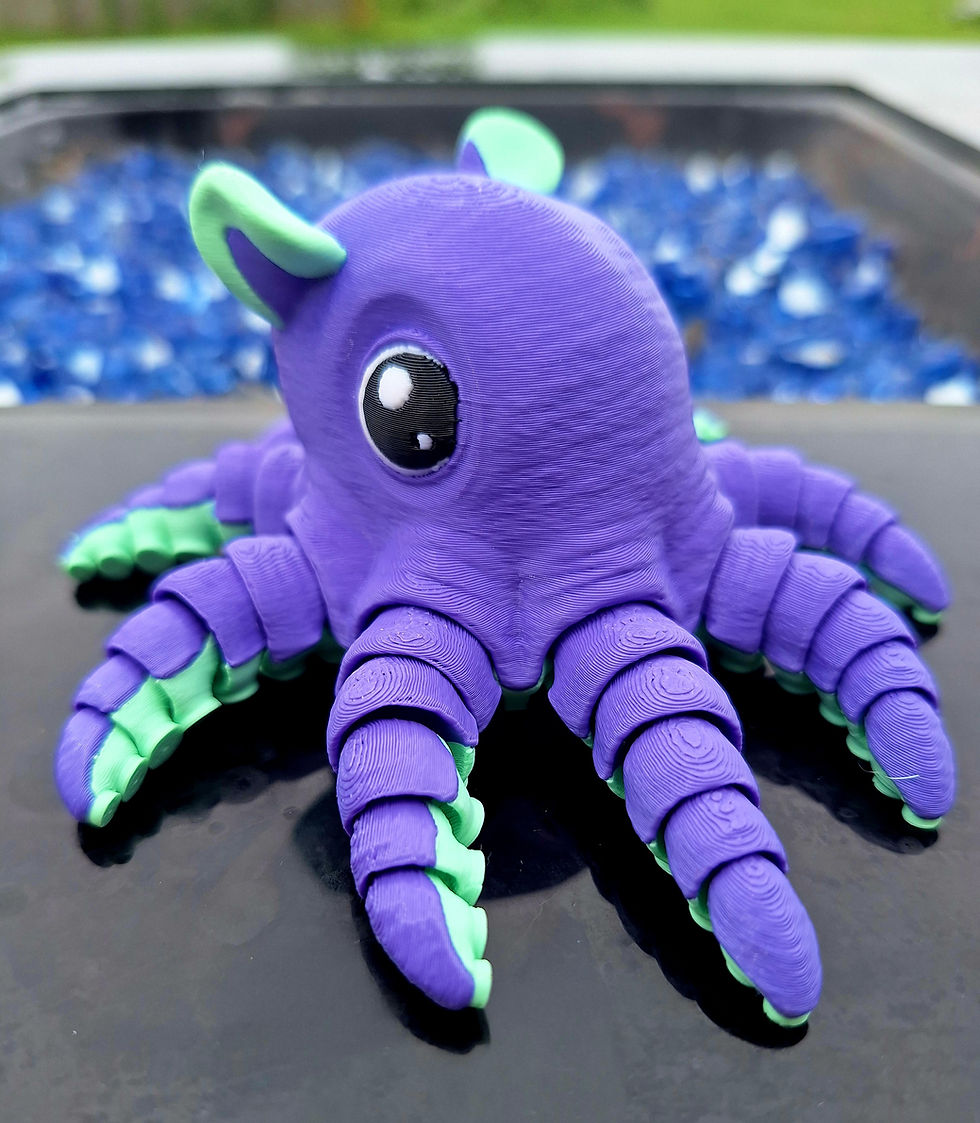🔥 Neurodivergent Burnout: What It Is and How to Recover
- WeBe Sensory

- Jun 30, 2025
- 3 min read

It's not laziness—it's survival mode. And healing is possible.
If you're feeling completely drained—mentally, emotionally, physically—but can’t explain why, you might not be “just tired.” You might be experiencing neurodivergent burnout.
This type of burnout is deep, consuming, and chronic, and it affects many autistic, ADHD, and otherwise neurodivergent people—especially when we’ve spent too long masking, people-pleasing, over-performing, or simply trying to survive in a world that wasn’t built for our brains.
Let’s talk about what neurodivergent burnout really is, why it’s different, and how to start the recovery process with gentleness and grace.
🧠 What Is Neurodivergent Burnout?
Neurodivergent burnout is an intense, long-lasting form of exhaustion that happens when your emotional, cognitive, social, and sensory resources are completely depleted.
It’s not the same as regular stress or short-term fatigue—it’s a full-system shutdown that can affect your:
Memory and focus
Executive functioning
Tolerance for social interaction or sensory input
Ability to mask or “perform”
Motivation—even for things you love
Sense of identity and self-worth
It can last for weeks, months, or even years, especially if left unrecognized or unsupported.
🚩 Signs of Neurodivergent Burnout
Feeling emotionally numb or overly sensitive
Increased anxiety or depression
Loss of skills you once managed (like daily hygiene, cooking, communicating)
Avoiding social situations or responsibilities you once handled
Sensory overwhelm from small stimuli
Brain fog, forgetfulness, or trouble making decisions
Exhaustion that doesn’t go away with rest
If you’ve ever thought, “I can’t do this anymore, and I don’t know why,”—this may be why.
🧬 What Causes It?
Neurodivergent burnout doesn’t come out of nowhere. It’s often the result of chronic overload, like:
Masking (hiding stims, forcing eye contact, faking small talk)
Constant sensory overwhelm
Overworking to “keep up” with neurotypical expectations
Lack of accommodations at school, work, or home
Feeling misunderstood or invalidated
Internalized pressure to be “normal” or “easy”
Cumulative trauma, especially from being undiagnosed or unsupported
Burnout is your body’s way of saying: “I can’t keep doing this.”
💛 How to Recover (Slowly, Gently, Intentionally)
There’s no quick fix—but there is a path forward.
1. Recognize and Validate It
You are not lazy, broken, or failing.You’re burned out. That’s a legitimate state, and your feelings are real.
2. Remove or Reduce Stressors
Say no. Cancel things. Lower expectations.If you can take leave from work or reduce your load—do it. Rest isn’t selfish; it’s survival.
3. Unmask Where It’s Safe
Drop the performance. Stim freely. Use your headphones. Take breaks. Be weird. Be real.The less energy you spend masking, the more energy your body can use to heal.
4. Use Comfort Tools
Weighted blankets, fidgets, sensory-safe spaces, comfort shows, safe foods—these aren’t indulgences. They’re medicine for your nervous system.
5. Rebuild Slowly
Start with one task per day. One gentle routine. One corner of your room.Healing isn’t about productivity—it’s about safety, regulation, and self-connection.
6. Find Community
You are not alone. There are entire communities of people who’ve been exactly where you are. Talking to others—online or in real life—can lift the shame and remind you:Your worth is not measured by your output.
🌱 Final Thoughts
Neurodivergent burnout is real—and recovering from it takes time, support, and unlearning the idea that you have to do it all without help.
You are allowed to rest.You are allowed to need less stimulation, fewer tasks, and more comfort.You are allowed to fall apart and come back together differently.
And most of all:You are worthy, even when you're tired.Especially when you’re tired.
—The WeBe Sensory Team 💛
✨ Need tools to support your recovery?
Our WeBe Wonderbox™ delivers calming aids, sensory tools, and self-regulation resources every month—made to meet you where you are and support you gently through the hard days.



Comments